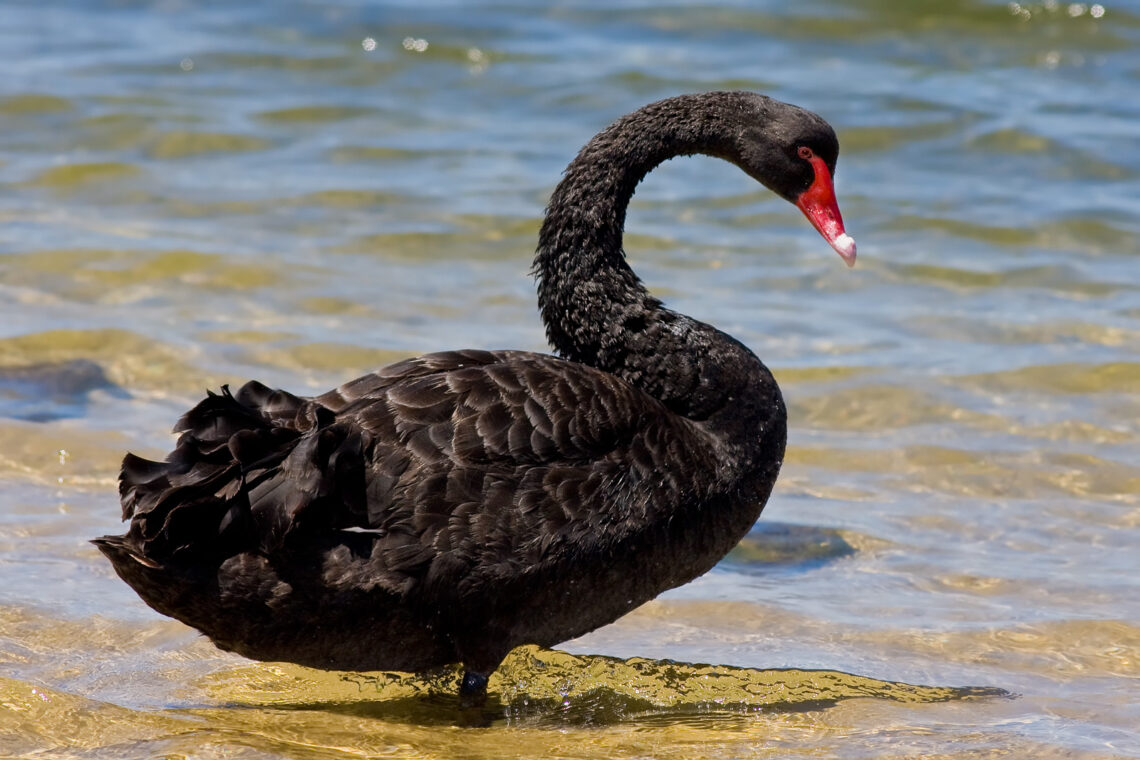I admit, I haven’t read anything by Nassim Nicholas Taleb. I’ve only watched a couple of videos about him. Nonetheless, some of basic ideas of his are fairly easy to grasp second hand. For example, apparently Taleb compares top-down controlled organizations with those that are more laissez-fare. According to Taleb, the motivation for upping control is fairly sensible. The more control, the less risk. However, the problem with more control is that a system will be unable to cope with black swan events, unpredictable events that can cause wide-scale rupture to a system. Less centrally controlled systems are much more volatile as a matter of course but cope more easily with black swan events.
For example, if you lived in an air controlled, clean room without much human contact for your childhood, you are going to have less colds, flus, and other sicknesses. But once you leave your room for a city, you’ll catch everything and maybe end up in a hospital with pneumonia. If, on the other hand, you went to boarding school, played in the dirt, and once ate a wasp for a dare, you’ll catch a bunch of colds and worry your parents sick. But one day, when you are jettisoned into the world, you’ll have a certain degree of immunity and resilience in the face of common diseases.
For a larger scale example consider the difference between a free and centrally controlled economy. A free-market system allows the free exchange of goods according to the prices the market is willing to pay. Market systems are volatile. People’s tastes change regularly. Something in high demand one day is in the bargain bin the next. Companies rise and fall in relatively short amounts of time. In contrast, a centrally controlled economy is far safer. Jobs are secure, prices remain the same, and there is much less volatility. That is until a black swan event occurs. When something unpredictable occurs, a controlled economy can suffer a massive collapse. In contrast, the more volatile market-led economy can survive a black swan event and regain its strength in a relatively short time.
The distinction ranges over any sort of human organization. The question is: which is better?

Consider the organization of the world. God has a similar dilemma. Should he run a controlled economy or one that allows more volatility? Is a world in which there is greater volatility but more resilience to unpredictable one-off events better than one in which there is more stability but in which black swan events can have catastrophic effects? The question interests me not only for its value for organizational leadership, but because it relates interestingly with the problem of evil.
The problem of evil, at least in its logical form, asks the theist to provide a possible morally sufficient reason for God creating a world in which there is evil. Atheists often suggest that God does not exist on the grounds that if he did, then he’d remove evil and since he hasn’t he either isn’t good or doesn’t exist, which amounts to the same thing (since God is necessarily good).
But what if God cannot remove evil without causing a worse world? Much rests on what kind of world we consider worse. And our intuitions about Taleb’s comparisons help us with this question. After all, consider what God would have to do in order to remove evil. In order to remove it, he’d have to control the world in such a way that no one is able to do anything wrong – a maximally controlled economy!
Putting aside questions about why God created anything and why he created human beings, asking what God would have to do in order to remove evil now its here provides some insight into the general problem.
In his book, The Many Faces of Evil, John Feinberg asks us to imaging all the possible ways in which God could remove evil. God could, of course, wipe out all human beings. This would end moral evil as we know it in an instance. But surely the prospect of non-existence is not a better world. For one would have to prefer not to exist.
Alternatively, God could eliminate objects of desire or even desire itself. These solutions entail that God would have to destroy the world or us in order to remove our desires. For, as it turns out, us humans desire all sorts of things. We can turn any ordinary desire into a desire for something evil. Removing all the objects of desire amounts to removing most objects or removing anything about those objects that makes them desirable. But surely removing the desire-causing properties of all objects makes for a dreadful world. It would be a world in which no food tastes good, no people look beautiful, and no work generates a profit.
God could just remove our desires. Indeed, some claim that desire is the root of all evil and if we could just suppress it enough, we’d never suffer. What if God just removed it entirely? But wouldn’t that world be as bad as the last one? There might be beauty, sweetness, and rewards. We just wouldn’t appreciate them. Motivation for pretty much any activity would be gone. Sure, no one would commit an evil act. But then it’s hard to imagine us doing anything since we wouldn’t want to do anything.
What else could God do? Perhaps God could ensure that desires are only for good activities. He could vigilantly police our desires and intervene as soon as they become desires for evil. One trouble with this solution is that almost any desire can become a desire for evil. Innocent desires for food, love, friendship, and achievement can soon turn to gluttony, infidelity, factiousness, and pride. Still, perhaps God could intervene only when a good desire goes south.
Feinberg asks us to imagine what such a world would be like. We would be put on pause as soon as an evil desire is initiated and only let go again once a good desire has replaced it. Life would come practically to a standstill. Every time a desire goes the wrong way, God would prevent it going any further. But, in practice, this entails constant road blocks to ordinary life. We would be constantly stopped in our tracks until our focus moves elsewhere and then stopped again moments later. And God would have to intervene a lot. Consequently, it is difficult to imagine any ordinary friendship occurring. Every meal, and conversation, exchange would be stop-start all the time. It would be an intolerable world.
Now, I admit I am stretching the analogy between the black swan event and the consequences of any of God’s actions. Nonetheless, the comparison Taleb makes relies on a similar intuition. Given the choice, we’d prefer a world in which there is constant volatility over a world in which there is less volatility but a great calamity. In the case of Feinberg’s solution to the problem of evil, the calamity is not an unpredictable event, but a state of affairs that would obtain as a result of God’s actions to remove evil. Nonetheless, we’d prefer the world in which there is evil as we have it presently instead of one of the other ways the world could have been without it. In other words, those other worlds are less valuable than this one.
All this might sound like we’ve jumped the gun. What makes it okay that God created us this way and not in some way such that we don’t even want to do bad things? Of course, now we are like this, we can assume God wants us to be like this. And being like this means we are going to do things wrong. But could God have made us differently. Perhaps with a vastly limited scope of desires. Perhaps all humans could have desired one thing in the same way.
If so, then there is another option: to radically change human nature. After all, don’t we Christians believe that we will one day live in glorified bodies? And if we don’t sin in glorified bodies, then why didn’t God just make us that way in the first place? Feinberg replies that God could have done so, but it is clear that he does not intend it to be that way. God intended to make us non-gloried first. God clearly thinks non-glorified human life is an inherent good, a beautiful thing of great value. Though deeply sinful, human life is of inestimable value – life, that is, as it is in its non-glorified state.





